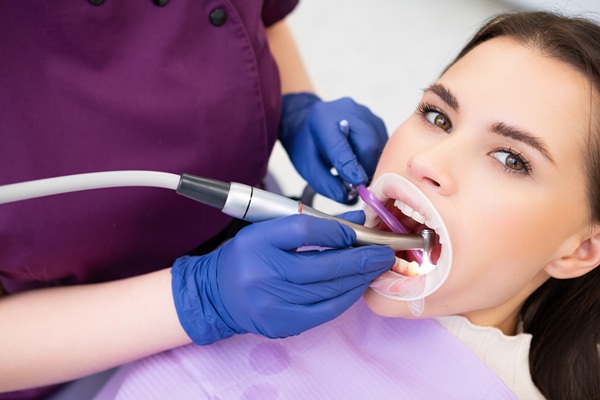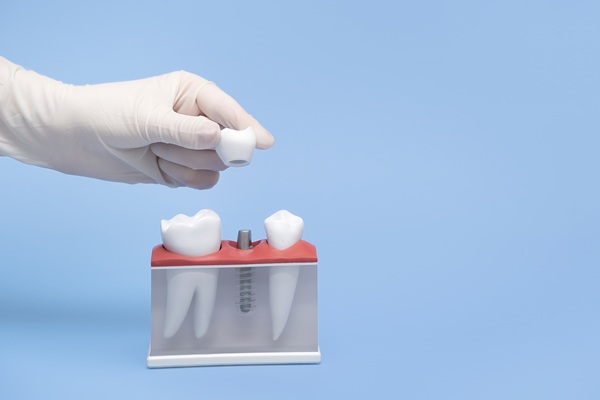Scaling and Root Planing Aftercare Tips

Scaling and root planing often cause gum redness, minimal swelling and minor irritation. With proper aftercare and routine professional care, your gum health will remain optimal.
Here is what you should know
Pain and discomfort following the treatment can be acute but should lessen within a few days. Any discomfort like slight throbbing or aches may simply be uncomfortable and typically stops within four hours. If you experience pain while brushing, reduce the intensity — the pain should subside in 24 to 48 hours.
Your teeth may be sensitive to extreme temperature and sweet items. Stick with warm meals and drinks until the sensitivity reduces.
Minor bleeding may occur while brushing but it will stop after two or three days. Avoid hot meals for a while, and do not rinse out your mouth, as it could prevent proper healing. If the bleeding continues, put pressure on the area with a moistened tea bag or gauze. Keep it there for about 20 minutes. If the bleeding does not cease after 48 hours, call the dental office as soon as possible for more instructions. As the inflammation reduces, the root surfaces may be exposed further, creating more gaps between the teeth.
Tips for minimizing the symptoms
If the scaling and root planing were extensive, you might feel pain while chewing hard foods such as meat or raw vegetables. This should stop after a few days. You should stick with a softer diet until chewing becomes more convenient.
After the numbness wears off, you can resume your regular diet. Avoid sticky, hard (popcorn, nuts, ice cubes, chips), acidic, spicy, brittle or highly seasoned foods. Foods such as pasta, scrambled eggs, soups, macaroni, mashed potatoes and cheese are preferable. Consume nutritious food and stay sufficiently hydrated. You should avoid smoking for at a week or two after the procedure because that could delay healing considerably.
For pain and sensitivity
If the dentist used local anesthesia, avoid chewing until the numbness stops to prevent injury to your cheek or tongue. You can take acetaminophen or non-aspirin analgesic to relieve discomfort. If the tooth sensitivity persists, you can get a desensitizing toothpaste. You will need to contact the dental office for a stronger desensitizing agent if the sensitivity is prolonged.
Oral hygiene
If the gum tissues are inflamed, brush gently and thoroughly until your gums feel normal again. You can start your normal oral hygiene routine after three or four days. You can clean your mouth with antimicrobial mouthwash rinse. Limit the use of the mouthwashes to every one or two weeks.
Home care
You can promote recovery by rinsing your mouth with warm saline rinses four to six times daily. Swish the solution for 30 seconds in the mouth after meals or snacks. You can make a warm saline rinse by mixing one teaspoon of salt with eight ounces of water.
In conclusion
There is no need to be worried if you experience pain, bleeding or irritation after a scaling and root planing procedure. Continue home care as directed, and if the symptoms persist, reach out to your dentist or dental hygienist immediately.
Request an appointment here: https://smilesdental.com or call Smiles Dental Care at (650) 563-1180 for an appointment in our Mountain View office.
Check out what others are saying about our services on Yelp: Read our Yelp reviews.
Recent Posts
A new dental filling restores tooth structure, and smart aftercare helps it last. Understanding the importance of care and maintenance after you get a new filling can significantly improve your dental health and overall well-being. The following tips can help you maintain optimal oral hygiene to protect and extend the lifespan of your dental fillings. Patients…
Getting tooth implants is not the final phase of an implant restoration procedure. The stage is simple, but the recovery period can be uncomfortable. This part of the implant process is the time for the mouth heals and fuses to the implant post. The following guide covers what to expect during recovery and the steps…
A gentle dentist offers quality dental care with a focus on comfort. They strive to make dental visits feel less stressful and more supportive so that patients of all ages feel relaxed in the dental chair. By using clear communication and patient-friendly techniques, even routine cleanings and restorative treatments can feel easier to manage.Many people…
An implant crown is made of strong and safe materials to give the patient a reliable long-term replacement option for missing teeth. If you have questions about the materials used to make an implant crown, this review can help you understand what exactly each component is made of and why dentists use these particular materials.There…


